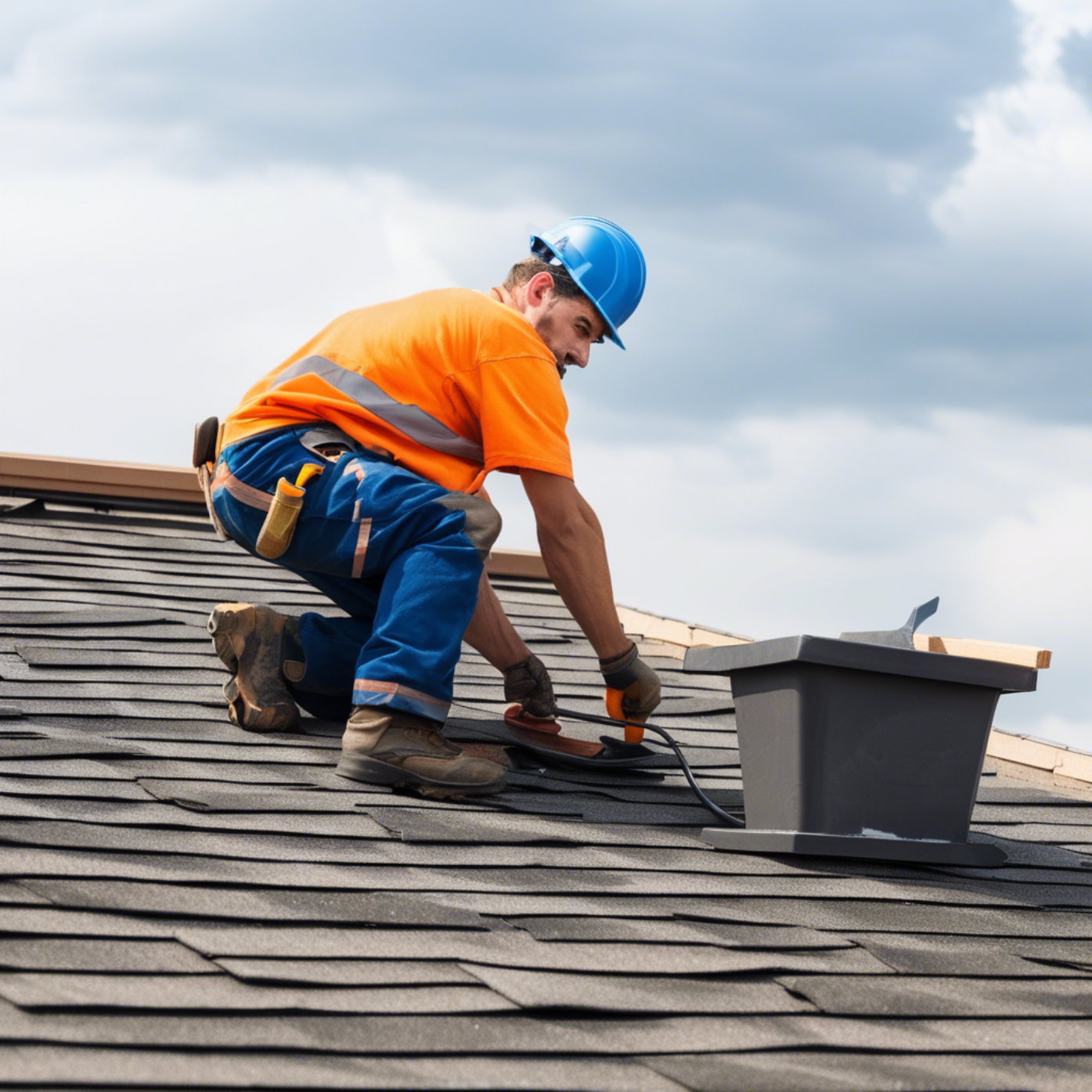
Choosing the Right Commercial Roofing Contractor in Denver: What Businesses Need to Know
In Denver’s dynamic climate, commercial buildings face a range of challenges that demand durable, weather-resistant roofing systems. From harsh UV exposure at high elevations to the pounding hailstorms and freeze-thaw cycles of Colorado winters, business owners can't afford to gamble with an inferior roof. This is where the role of an experienced commercial roofing contractor Denver becomes indispensable.
Whether you own a warehouse in RiNo, manage a retail complex in Cherry Creek, or operate industrial facilities near I-25, your roof is your first and last line of defense. It protects inventory, people, and the structural integrity of your building. Choosing the right contractor ensures not only reliable installation but also lasting performance and peace of mind.
Why Commercial Roofing in Denver Requires Specialized Expertise
Denver's elevation of over 5,000 feet above sea level increases UV intensity. Combined with rapid temperature swings and seasonal hailstorms, these factors create one of the harshest roofing environments in the country. For commercial property owners, these conditions amplify the need for quality craftsmanship and the right materials.
A commercial roofing contractor must understand not just the basics of roofing systems, but the specific codes, climate patterns, and engineering challenges associated with large-scale structures. This includes sloped versus flat roofing requirements, drainage system design, energy efficiency considerations, and compliance with city and state regulations.
Understanding Commercial Roofing Systems
The range of commercial roofing materials available today is vast, and each comes with its own benefits and ideal use cases. TPO (thermoplastic polyolefin) is a popular choice for its energy efficiency and reflective properties, making it well-suited to Denver’s sunny climate. EPDM, a synthetic rubber membrane, offers strong resistance to UV radiation and extreme temperatures. Metal roofing, while more costly upfront, provides unmatched longevity and is commonly chosen for industrial facilities or buildings where durability is paramount.
PVC roofing systems are especially valuable for businesses that require high chemical resistance, such as restaurants or laboratories. Modified bitumen, a time-tested asphalt-based system, remains a solid choice for buildings that require a layered, reinforced surface.
The key is not to select a system based on popularity alone but to work with a contractor who can analyze your building’s structural design, insulation needs, and long-term maintenance budget. A commercial roofing contractor in Denver should guide you through these options with insight drawn from local experience.
The Commercial Roofing Process from Start to Finish
When working with a professional contractor, the process begins with a detailed inspection and needs assessment. This includes evaluating the existing roof structure, identifying signs of water damage, checking for insulation performance, and inspecting critical areas like flashing and drainage systems.
After the initial assessment, the contractor will present a comprehensive proposal. This should detail the recommended materials, timeline, warranty options, and costs. Transparency at this stage is essential—there should be no hidden fees or vague language.
Once the project begins, a dedicated project manager typically oversees the installation process to ensure all work aligns with Denver's building codes and the manufacturer’s warranty requirements. Quality assurance checks and a final walk-through complete the process, ensuring the client is satisfied and the roof is ready to face Colorado’s unpredictable weather.
Repairs, Restoration, and Maintenance: Not Just About Installation
While new roof installation is often top of mind, many commercial roofs simply need targeted repair or restoration. In fact, restoring an existing roof—by applying advanced coatings or reinforcing weakened sections—can add 10 to 15 years of functional life without the cost of a full replacement.
Common repair issues in Denver include leaks from punctures or failed seams, blistering from trapped moisture, shrinkage around rooftop units, and clogged drainage systems after heavy storms. An experienced contractor will not only fix these problems efficiently but also recommend ways to prevent recurrence.
Ongoing maintenance is perhaps the most overlooked service offered by commercial roofing contractors. A professional maintenance plan includes periodic inspections, minor repairs, debris removal, and condition reporting. These proactive steps can reduce lifecycle costs, prevent business disruptions, and protect your investment year after year.
How to Evaluate a Commercial Roofing Contractor in Denver
With numerous roofing companies offering services across the Front Range, selecting the right contractor involves more than checking reviews online. While positive feedback on platforms like Google and the Better Business Bureau is important, the most telling indicators are a company’s certifications, project portfolio, and communication style.
Make sure the contractor holds appropriate licenses from the City and County of Denver, carries comprehensive liability and workers’ compensation insurance, and employs technicians trained and certified by major manufacturers like GAF, Firestone, or Carlisle.
The ability to communicate clearly and consistently is also critical. A good contractor will keep you informed throughout every stage of the project, from design to final inspection. They’ll provide a detailed timeline, adhere to OSHA safety standards, and respond quickly to any concerns that arise during or after the job.
The Value of Working with a Local Denver-Based Company
When it comes to commercial roofing, local knowledge is everything. A Denver-based contractor understands the intricacies of the climate, zoning regulations, and permitting process better than out-of-town firms. More importantly, they’ve likely worked on buildings just like yours—offices in Capitol Hill, warehouses near Commerce City, or educational campuses in Aurora.
Local companies are also more accessible when emergencies arise. A leaking roof after a spring hailstorm or a drainage issue during the first snow melt in fall requires a fast response. National firms may not be able to send technicians for days, while a local team can often resolve the issue the same day.
Finally, hiring locally means supporting the Denver economy and developing lasting relationships. Many of the best contractors stake their reputation on trust, reliability, and word-of-mouth within the community.
Cost Considerations and Long-Term ROI
While cost is always a consideration in a commercial roofing project, it’s important to think beyond the upfront investment. The cheapest bid may result in poor materials, cut corners, and expensive problems later on.
A well-installed roof using high-quality materials will reduce energy costs through better insulation and reflectivity. It will also last longer, require fewer repairs, and maintain your building’s value. A reputable commercial roofing contractor will help you weigh short-term and long-term costs and select the system that aligns with your financial goals.
Financing options, warranty coverage, and energy savings programs are all part of the discussion—and a quality contractor will be transparent about every detail.
Final Thoughts: Protecting Your Property with the Right Roofing Partner
Your commercial roof is more than a structural necessity; it’s a strategic asset. It protects your operations, your customers, your employees, and your future growth. Choosing the right commercial roofing contractor in Denver is one of the most important decisions you’ll make as a building owner or property manager.
From new installations to emergency repairs and routine maintenance, the right roofing partner brings peace of mind and professional excellence. They combine technical knowledge with local expertise to deliver a system that performs under pressure—through summer heat, winter snow, and everything in between.
If your roof is aging, showing signs of wear, or hasn’t been inspected in over a year, now is the time to act. Denver’s climate won’t wait—and neither should you.




Write a comment ...